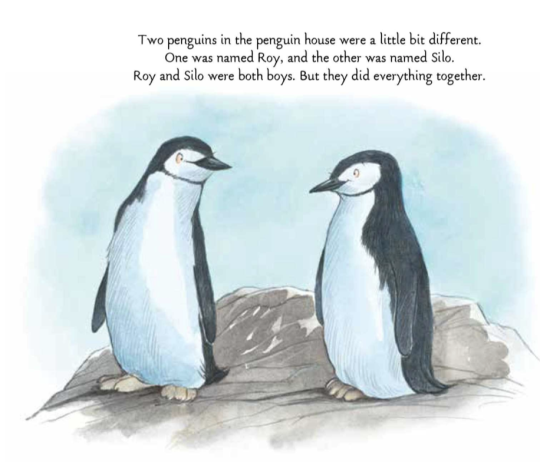Longer/in-depth read for those interested.
Almost exactly five years after the Supreme Court’s hearings and landmark decision in Obergefell v. Hodges making same-sex marriage the law across the country, the Supreme Court will once again be hearing important cases on LGBTQ+ rights.
Let’s forward this by saying that it’s insulting that our rights are up for deliberation, period. But they are, and this is where we are at now.
In brief what these cases boil down to is: Whether it’s legal under existing federal law to fire someone solely on the basis of their sexual orientation or gender identity.
That’s an important distinction, because unlike in Obergefell where there was a question about the broad constitutional basis for marriage equality these cases rest specifically on whether Title VII of the Civil Rights Act encompasses sexual orientation and gender identity within the framework of “sex” as an established protected class. While it could get messier (especially if the Justices attempt to bring First Amendment issues into play), the underlying legal question isn’t about whether or not LGBTQ+ folks should have a right to non-discrimination protections, it’s whether they are currently protected.
From what I understand the Title VII argument started under the Obama-era as a parallel to legislative efforts to get what is now The Equality Act signed into law. That law would formalize the inclusion of gender identity and sexual orientation in federal civil rights law; largely rendering this legal argument moot. But in lieu of Congressional movement, and with a patchwork of state and local laws providing inconsistent protections, the Title VII argument provided a workable and – might I add, clever – argument to try and win protections through the courts for folks across the country. And they were moving in a positive direction until the 2016 election utterly derailed things.
In short, the Title VII interpretation that LGBTQ+ rights advocates are working with (and one that the Obama-era Department of Justice, and even the current Equal Employment Opportunity Commission concurred with) is that discrimination based on LGBTQ+ status is inherently a function of discriminatory attitudes rooted in our stereotypes of sex itself.
You can see it here in the ruling around one of these upcoming SCOTUS cases – R.G. & G.R. Harris Funeral Homes v EEOC & Aimee Stephens:
”Discrimination against transgender persons necessarily implicates Title VII’s proscriptions against sex stereotyping….an employer cannot discriminate on the basis of transgender status without imposing its stereotypical notions of how sexual organs and gender identity ought to align.”
The grounds in Zarda v Altitude Express are similarly expressed by a circuit court opinion:
“’Stereotypes about homosexuality are directly related to our stereotypes about the proper roles of men and women…the gender stereotype at work is here is that ‘real’ men should date women, and not other men’…Beliefs about sexual orientation necessarily take sex into consideration.”
Interestingly enough, Chief Justice John Roberts in the arguments on Obergefell seemed to at least nod towards this overlap; asking:
“I’m not sure it’s necessary to get into sexual orientation to resolve the case. I mean, if Sue loves Joe and Tom loves Joe, Sue can marry him and Tom can’t. And the difference is based upon their different sex. Why isn’t that a straightforward question of sexual discrimination?”
It’s a compelling argument, but unfortunately, the Supreme Court (particularly with its now entrenched conservative majority) is going to be difficult territory. And – much to my dismay as I took some time to re-read them – the Obergefell dissents of sitting Justices Roberts, Alito, and Thomas paint a pretty clear picture of how they might seek to rule here. (Scalia also dissented, but he’s no longer on the Court so I’ll skip his grandstanding in this piece).
There’s Thomas with the argument that the Government should stay out of these things entirely: “Our Constitution–like the Declaration of Independence before it–was predicated on a simple truth. One’s liberty not to mention one’s dignity, was something to be shielded from–not protected by–the State.”
Then Alito delivering a scathing attack on “five unelected Justices…imposing their personal vision of liberty upon the American people.” And the “deep and perhaps irremediable corruption of our legal culture’s conception of constitutional interpretation.” No beating around the bush there.
And then there’s Roberts who is more measured but not less firm: “Understand well what this dissent is about: It is not about whether, in my judgment, the institution of marriage should be changed to include same-sex couples. It is about whether, in our democratic republic, that decision should rest with the people acting through their elected representatives, or with five lawyers who happen to hold commissions authorizing them to resolve legal disputes according to law. The Constitution leaves no doubt about the answer.”
I don’t have a crystal ball on the Supreme Court, and they’re enigmatic enough that there’s a possibility that maybe, just maybe, a victory could be won on the merits of the logic driving this case. But if I would have to guess, I’d predict the conservatives of the court (those above, joined by Gorsuch and Kavanaugh) knock this down on the grounds that if the Congress sought to include sexual orientation and/or gender identity in Title VII they would have, and that if they want to include it now, they could.
On its face a ruling against LGBTQ+ rights in this case would have minimal impact. While it would certainly be a loss for those directly involved in these legal proceedings, the general status quo of the country would not be changed: people in states/localities with protections would still have them, the rest of the country would not.
But a loss here would also be a hit to morale on a community that has endured a lot over recent years; and it would embolden those who seek to further erode LGBTQ+ rights in an effort to push us back out of the public square.
While fretting about Supreme Court decisions a year out is much like worrying about the weather (there’s little to be done but prepare and hope for the best), especially when it’s all so speculative; it’s hard not to. Especially when these decisions could have such far-reaching impact. And especially when chance of passing The Equality Act or any other meaningful federal legislation is a long-shot dependent – at least in our current paradigm – on Democrats taking the majority in Congress and the White House.
I share all this not to be a downer, but because I think it’s crucial that we all recognize the gravity of our present moment and the importance of actions between now and 2020 when both this ruling and the next major election will take place. In short: we have a long fight ahead of us, and we need allies more than ever.
Strength to you all.






